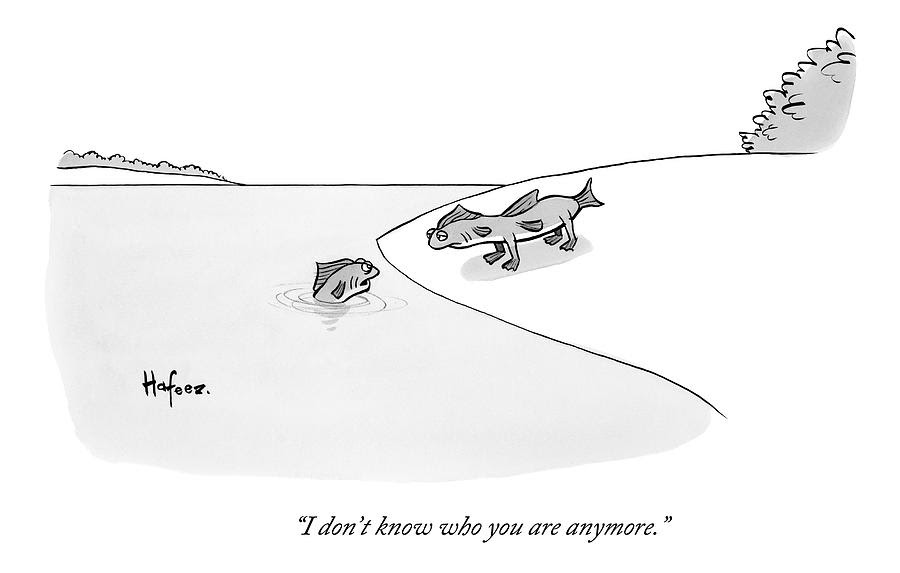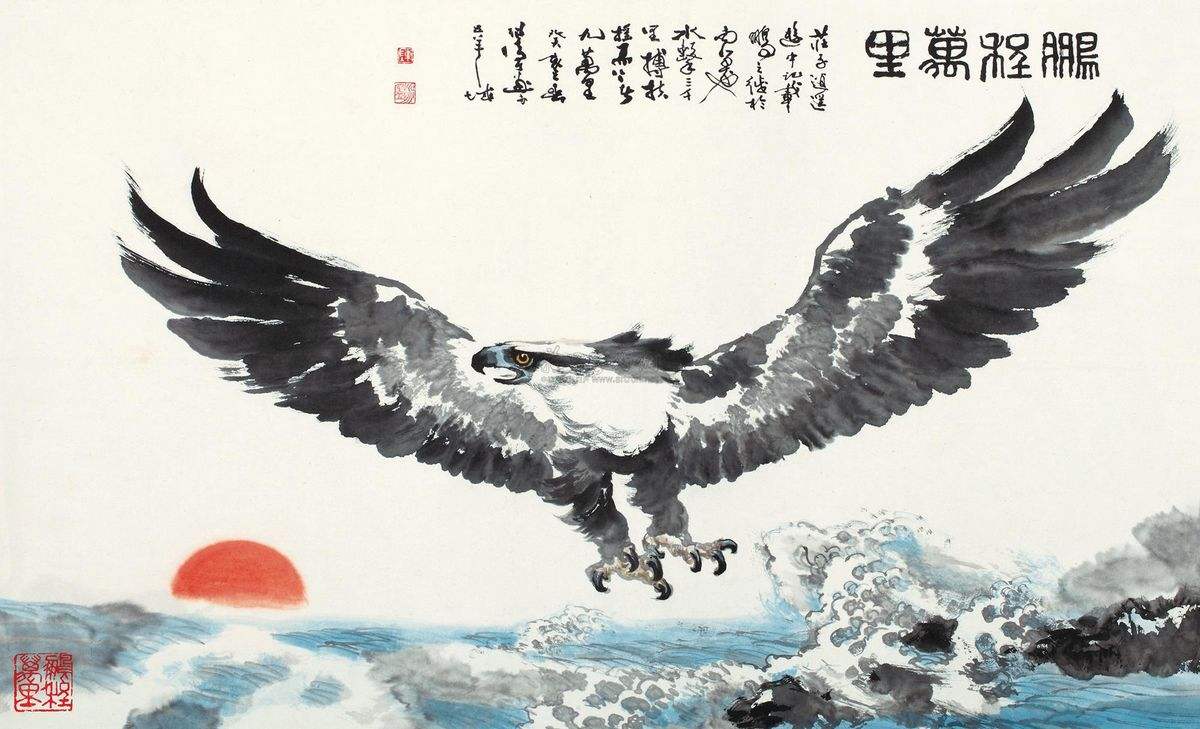Great Peng and the purpose of Taekwondo
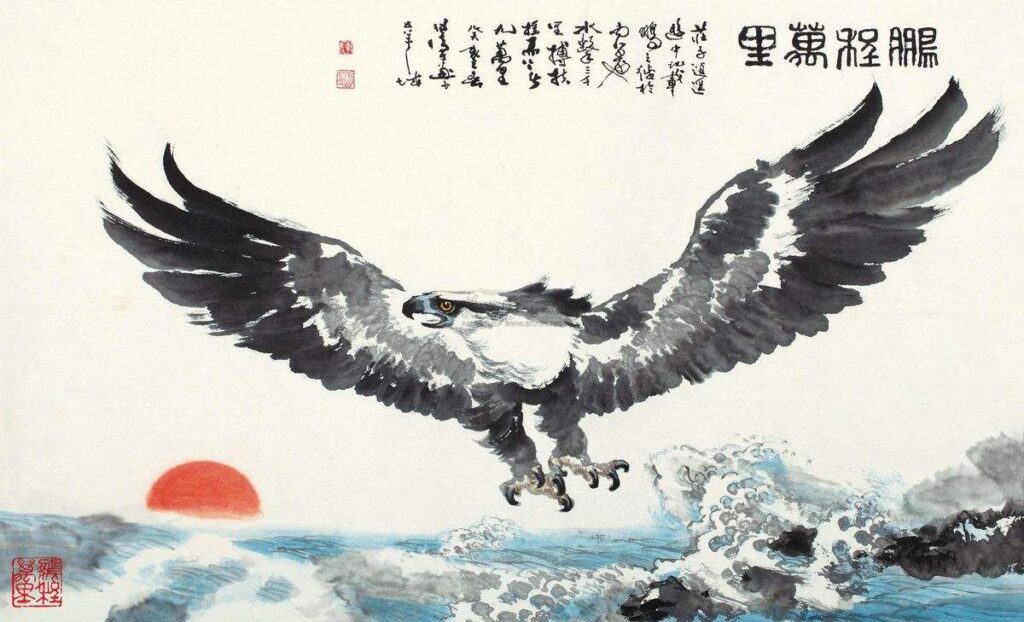
Whether one’s martial arts journey began yesterday or decades ago, it began with a set of intentions. Some people train for fitness or for self-defense — or simply for the camaraderie of the dojang. Others aim to stand out as tournament competitors, champions who have defeated or surpassed all rivals in a sports tournament.
Sooner or later, however, as the years and injuries accumulate, everyone comes to a point where one pauses and reflects, asking, “Where is my Taekwondo training — my martial arts journey — taking me? How does Taekwondo fit into the rest of my life?”
“Where is my Taekwondo training — my martial arts journey — taking me? How does Taekwondo fit into the rest of my life?”
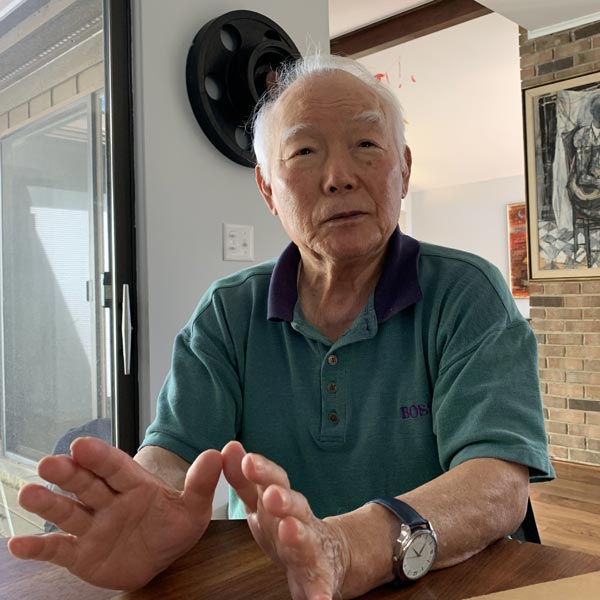
Taekwondo schools often tend to discourage students from seriously analyzing or questioning the fundamentals. Kangdukwon, however, encourages its students to actively examine and question everything about Taekwondo — indeed, everything about life.
Hwa Chong, Taekwondo teacher and mentor par excellence for over fifty years, recently remarked that “every student of Kangdukwon should understand the purpose of Taekwondo.” Its purpose, he said, is “to turn an ordinary person into an extraordinary person.” That is the whole aim and purpose of Taekwondo.
“The purpose of Taekwondo is to turn an ordinary person into an extraordinary person.”
— Hwa Chong
So of course the question that follows is: What then do the Great Grand Masters (such as Hwa Chong) mean by an “extraordinary person”?
Peng represents Indomitable Will
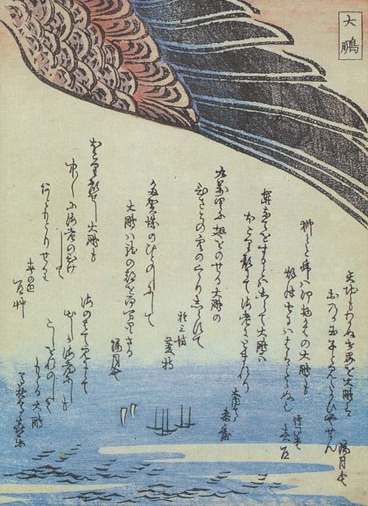
To illustrate his point, Grand Master Chong draws upon the metaphor of the Great Peng (大鵬). A fanciful creation of the ancient Chinese poetic imagination to Western interpreters, the image of Peng, a giant bird in Chinese mythology, soaring high in the sky is a symbol of great aspiration and indomitable will.
The Peng begins life as a Kun (鯤), meaning a giant fish, but the word kun originally meant fish roe or spawn. In other words, the incomprehensibly great Peng starts life as a small fry, a little fish in a sea full of bigger fish.
What distinguishes the Kun from all other fish, however, is not its gigantic size as much as its ability to sprout wings and transmogrify itself into a truly gargantuan creature that lives high in the sky. A single wing of a great Peng, it is said, is so great that it darkens the sky.
大鵬 Great Peng
The Ch’an Buddhist master Hanshan Deqing (憨山德清, 1546-1623) declares the Peng is the image of the Taoist sage, and suggests the bird’s flight does not result from the piling up of wind but from the deep piling up of te or “virtue”. Julian Pas concurs that “the true sage is compared to the enormous bird.” The Peng soars above the limited perspective of the worldly multitude.
“A fish need wings to become a Peng.
What are the wings of a Peng?
This answer is found in the Five Virtues:
Wisdom, Benevolence, Faith, Discipline and Courage
These are your wings.
As your virtues grow and expand, so do your wings
Until one day, you are flying.
That is enlightenment or accomplishment in Taekwondo.
Some people are born with talents.
Others must strive to attain that enlightenment.
Neither things nor techniques bring enlightenment.
Virtuous actions lead to enlightenment.
That is the conclusion, the goal of Taekwondo practice.”
— Hwa Chong
Peng or Pinocchio?
As odd as the theme of the Peng may seem to modern educated people, yet the same theme appears in more familiar guises, including European fairy tales. All convey similar messages: the need for a moral compass to navigate life and discover or recover one’s authentic identity. It is the path to live as a Zhenren (真人), “a person who has cultivated perfection and attained the Tao”, literally a “true or genuine person”.
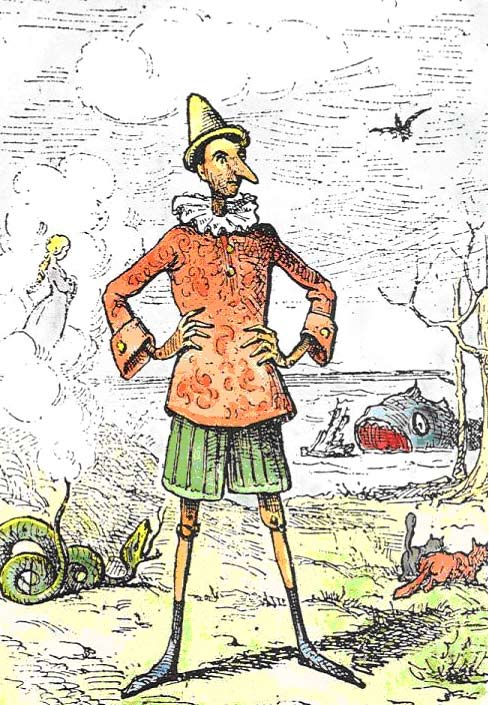
The ancient notion of the Peng is an example of a worldwide theme with such variations as The Adventures of Pinocchio, which chronicles the adventures of a wooden puppet whose lonely maker, Geppetto, makes a wish that his puppet could be a real boy. A fairy grants his wish by bringing the puppet, Pinocchio, to life, but tells Pinocchio that he must prove his worth before she will make him into a real boy. Little Pinocchio must transform himself to become an authentic human — a daunting task for a marionette with a head and heart made of wood.
The Peng transforms itself and is the agent of its own transformation, unlike Pinocchio, an enchanted log that was transformed into a “real boy” not by his own agency, but by that of external agents — a fairy and a puppet maker. As in any true fairy tale, we learn that finally “the Fairy with Azure Hair saves Pinocchio at the last moment.” Unlike the Peng, Pinocchio does not and cannot transform himself.
The message is clear: Be a Peng, not a Pinnochio.
Another difference between Pinocchio and a Great Peng: Pinocchio must learn his lessons from hard experience. Again and again, he stumbles and falls in with bad company until finally he returns to care for the aged Geppetto.
The Great Peng, however, is a different sort of fish. His transformations begin even when he is still a small fry. Before long, he is a fish of gargantuan size. When he can grow no further as a fish, he sprouts wings to fly and remain aloft for six months at a time. His wings are so broad that one wing alone darkens the sky.
What does it mean? Why bother with a 2,000 year old Chinese poetic fantasy? How does the transformation of the Kun into the Great Peng apply to us or to Taekwondo?
Taekwondo may be thought of as such an alchemical process of refinement and self-transformation. You only get as much out of it as you put into it, in other words.
Like puppets, each one of us is conditioned from childhood to conform to certain beliefs about oneself and what one is capable of achieving in life. From infancy, we are essentially puppets buffeted by forces from within and without that we do not fully understand, let alone control.
“The World Kangdukwon Federation should establish a ‘Great Peng Award’ for outstanding contributors and achievers who promote Taekwondo globally in the future.”
-Hwa Chong
Taekwondo — as taught by genuine masters of the art — is much more than a body of techniques for punching, kicking and blocking. A grand master who has not learned how to think like a general is not an authentic grand master. Similarly, if you don’t study philosophy, like the great visionaries, then you will never be a true grand master.
As Great Grand Master Hwa Chong keeps telling us, Taekwondo is nothing less than a lifelong process of evolution or transformation from an ordinary person into a Peng or a Zhenren, a sage or extraordinary person whose lofty perspective goes far beyond ordinary people’s comprehension. Or a true cosmopolitan, at the very least.
Note by Hwa Chong
Taekwondo needs to evolve according to changes in the course of evolution or change over the course of a lifetime, from an ordinary person to a real person with a noble perspective that far exceeds the understanding of ordinary people. We live in developed countries today because of the evolution of our parents.
How does one become a great strategist like King Frederick the Great? When asked, Fredrick the Great’s advice was to study the history of war diligently. However, when an officer said, “I think we should have more practical experience than such theories,” Frederick replied, “We have mules in our unit that have fought more than sixty battles, but they remain mules.”
In other words, one should not only pursue the outward appearance of success, but find the core and the secret of budo through the history of warfare. It is a case often cited to preach the importance of systematic and thorough theoretical study rather than clumsy practice in nurturing Kang Byung.
